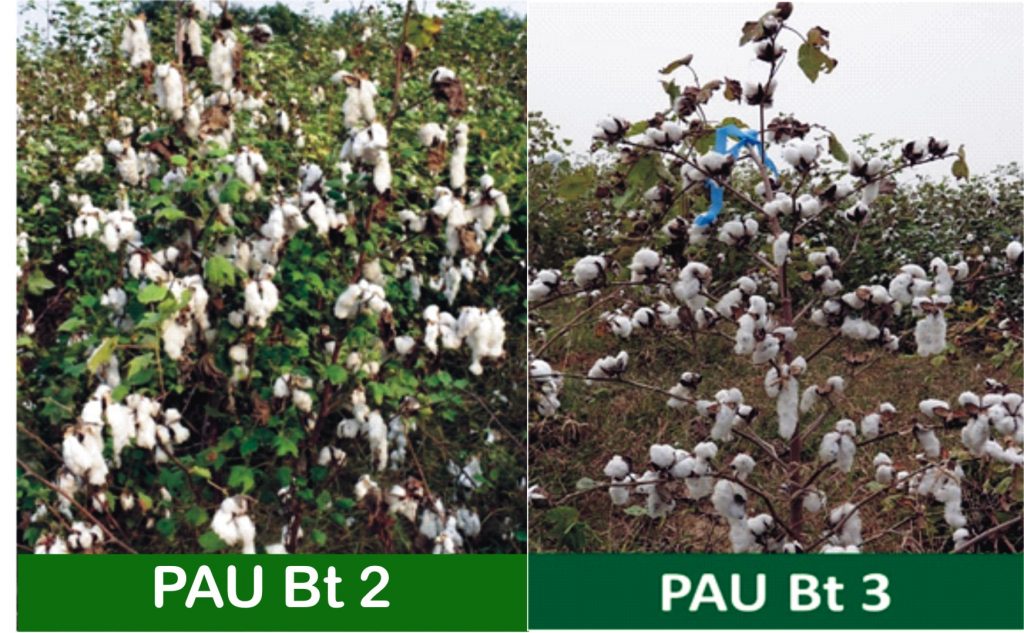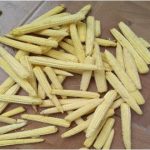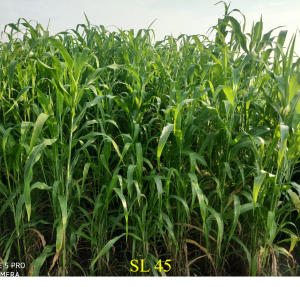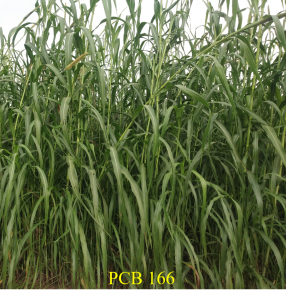The agriculture varsity has developed varieties of paddy, cotton, maize, urad, fodder
The Punjab Agricultural University (PAU), Ludhiana has developed and recommended eight new varieties of paddy, cotton, maize, urad (black gram) and fodder for general cultivation in Punjab. These include PR 131 and PR 130 of paddy, PAU BT 2 and PAU BT 3 of cotton, Punjab Baby Corn 1 of maize, Mash 883 of urad, SL 45 of fodder (sorghum) and PCB 166 of fodder (bajra/pearl millet).
The varieties were approved after thorough discussion during the state variety approval committee meeting for field crops, held under the chairmanship of the Punjab director of agriculture and farmers’ welfare Gurvinder Singh on March 7. PAU director of research A S Dhatt and director of extension education Ashok Kumar also attended the meeting.
PR 131 (on ad hoc basis) of paddy is a high-yielding, mid-maturing and lodging tolerant variety. Its average plant height is 111 centimetres and matures in about 110 days after transplanting. It possesses long slender translucent grains with high total and head rice recoveries. It is resistant to all the 10 pathotypes of bacterial blight pathogen prevalent in Punjab. Its average yield is 31 quintals per acre.
PR 130 of rice is a high yielding, mid-early and lodging tolerant variety. Its average plant height is 108 cm and it matures in about 105 days after transplanting. It possesses long slender translucent and lustrous grains with high total and head rice recoveries. It is resistant to all the 10 pathotypes of bacterial blight pathogen prevalent in the state. Its average yield is 30 quintals per acre.
PAU BT 2 is a BT cotton variety developed by the public sector with inbuilt resistance against spotted and American bollworms. Its average seed cotton yield is 10 quintals per acre. Its fibre length is of 27.6 mm and has ginning outturn of 34.4%. It matures in 160-165 days. It has good tolerance for jassid and cotton leaf curl virus disease.

PAU BT 3 is also a BT cotton variety developed by the public sector with inbuilt resistance against spotted and American bollworms. Its average seed cotton yield is 10.2 quintals per acre. Its fibre length is 26.2 mm and ginning outturn is 36.5%. It has good tolerance for jassid and cotton leaf curl virus disease.
 Punjab Baby Corn 1 of maize is a single cross hybrid that is male sterile, having medium tall plants. This hybrid is most suitable for baby corn as it gives a higher yield of uniform and good quality ears. Being male sterile, this hybrid does not need detasseling. Picking of ears starts around 52 days after sowing.
Punjab Baby Corn 1 of maize is a single cross hybrid that is male sterile, having medium tall plants. This hybrid is most suitable for baby corn as it gives a higher yield of uniform and good quality ears. Being male sterile, this hybrid does not need detasseling. Picking of ears starts around 52 days after sowing.
This hybrid variety gives about three pickings per plant. It gives on average 8.4 quintals per acre yield of dehusked ears. This variety gives 128 quintals per acre fodder yield after the completion of ear pickings.
Mash 883 of urad has been recommended for the whole of Punjab. Its plants are dwarfs, erect and compact with determinate growth habits. It is a short duration variety and matures in about 77 days. Podding is profuse and each pod contains 6-7 seeds which are medium bold, black and possess good culinary properties. Its average grain yield is about 4 quintals per acre. It is resistant to yellow mosaic disease and tolerant to other foliar diseases.
determinate growth habits. It is a short duration variety and matures in about 77 days. Podding is profuse and each pod contains 6-7 seeds which are medium bold, black and possess good culinary properties. Its average grain yield is about 4 quintals per acre. It is resistant to yellow mosaic disease and tolerant to other foliar diseases.
SL 45 of sorghum is a single-cut late maturing variety having tall (297 cm) plants with long and broad leaves. Its stem is juicy and sweet. It is resistant to red leaf spots and moderately resistant to zonate leaf spot diseases. It possesses better fodder quality, especially the crude protein and in-vitro dry matter digestibility. It gives 271 quintals per acre of green fodder yield.
PCB 166 of bajra is a dual-purpose composite variety with a greater number of tillers. It is a tall variety (281 cm) with long and broad leaves. It is a late maturing variety and comes to 50% flowering after 89 days. It is tolerant to all the major diseases of pearl millet. It possesses good fodder quality, especially crude protein and in vitro dry matter digestibility. On average, it gives 282 quintals per acre of green fodder.


To read in Punjabi and Hindi, click below.

We need Black gram Mash 883 seeds
Can you please let us know how can I buy the seeds?
You can contact the Punjab Agricultural University (PAU), Ludhiana for the Mash 883 seeds. For details, visit http://www.pau.edu